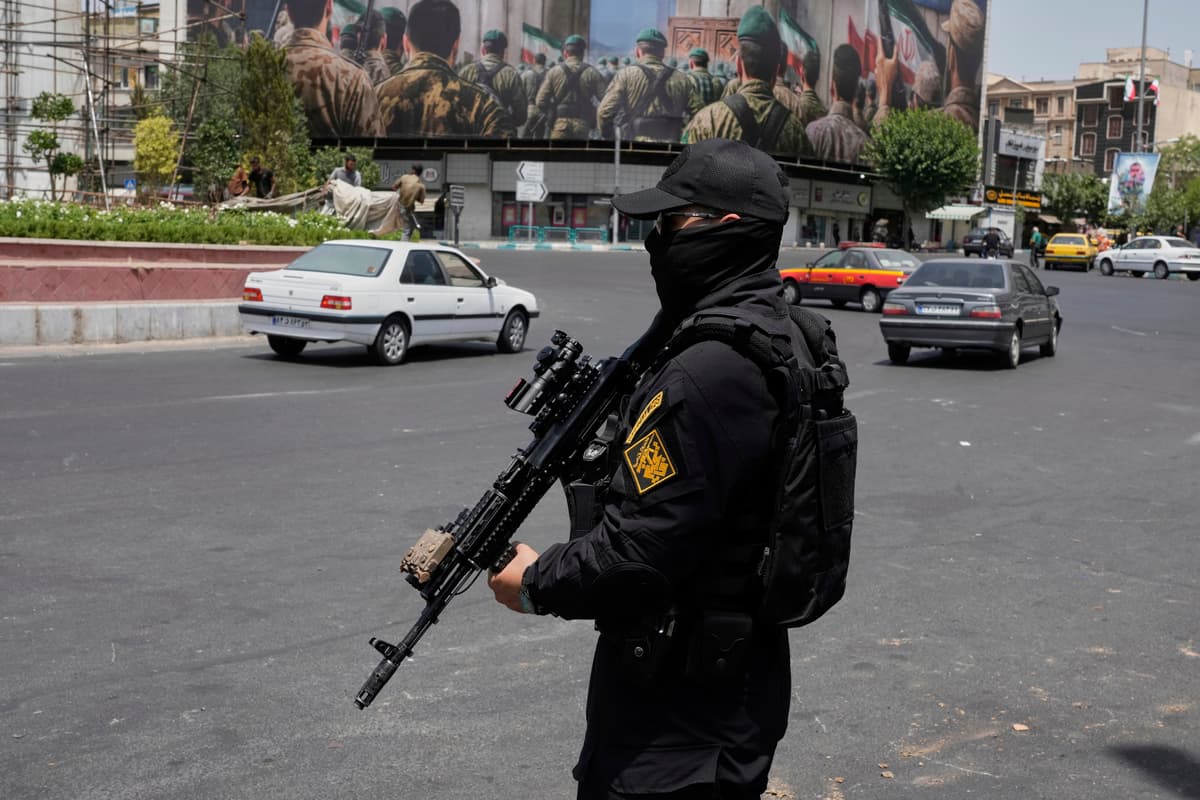Tehran Watchers Mystified as Iranian Oil Tankers Suddenly Allow Themselves To Be Tracked for First Time in Years
Could it be a conciliatory attempt by Iran following the recent United Nations Security Council’s ‘snapback’ renewal of global sanctions against Tehran? Are Iranian hardliners attempting to taunt the West?

For the first time since 2018, oil tankers affiliated with the Islamic Republic of Iran are allowing others to track their movement on the high seas — and Tehran watchers are mystified about the reason for the sudden transparency.
Iranian tankers have for years turned off the mandatory Automatic Identification System in order to evade American-imposed oil sanctions. As of Monday, though, with President Trump celebrating his 20-point Middle East plan — and even hinting at seeking peace with the Islamic Republic — Iranian AIS transmitters were back on. The tankers even seemed to be no longer executing a maneuver known as spoofing, meaning sending false signals to evade tracking.
“I really don’t understand what the motivation is for changing their tactic,” a Singapore-based watcher of illicit oil shipping, Charlie Brown, tells the Sun.
Could it be a conciliatory attempt by Iran following the recent United Nations Security Council’s “snapback” renewal of global sanctions against Tehran? Are Iranian hardliners attempting to taunt the West? Are they exposing oil exports — which violate an American embargo but aren’t explicitly covered by the snapback — while at the same time concealing arms imports that violate the new UN-mandated global sanctions?
“Like with anything, one explanation or theory isn’t going to cut it,” an Iran watcher at the Foundation for Defense of Democracies, Behnam Ben Taleblu, tells the Sun. “Tehran may hope to avoid international consequences about its illicit economic activities. Conversely, it may be operating in plain sight to test the resolve of the West to enforce sanctions, particularly as they relate to oil.”
Another possibility, he adds, is that “Iranian military officials may hope to escalate the standoff over oil sanctions enforcement, especially as the Islamic Revolutionary Guards Corps is bragging about being able and willing to close the Strait of Hormuz.”
The new Iranian tactic was first reported on Monday by TankerTracker.com. “For reasons still unknown, most Iranian-flagged tankers are now transmitting properly over AIS, without spoofing, for the first time in seven and a half years,” the specialized group wrote on X. “This change began today. Please note that two different AIS data providers confirm this.”
Will the tactic reversal include ship-to-ship oil transfers, though? Those, Mr. Brown says, are most often conducted off-shore, near the Malaysian state of Johor. They occur out of Malaysia’s territorial waters but inside its exclusive economic zone. Ship-to-ship transfers are designed to help Communist China conceal the final destination of Iranian oil.
An Iranian tanker off of Malaysian waters transfers oil to another tanker, which then sails to offload in Chinese “teapot” refineries. That way, Beijing can tell American sanction enforcers that it buys Malaysian, rather than Iranian, oil. That is despite the volume of oil that China claims to buy from Malaysia exceeding that country’s oil production.
Mr. Brown, who watches oil shipping for United Against Nuclear Iran, says he wonders whether Tehran’s apparent decision to turn on AIS transmission would also apply to the ship-to-ship maneuver. “Previously, the vast majority of ship-to-ship transfers that happened in that area would happen with both ships in the dark,” he says. Will the Iranians now “keep the AIS on during conducting ship to ship transfer operations?”
Such questions could ultimately determine whether illicit Iranian oil smuggling will be easier to track and help enforce Mr. Trump’s “maximum pressure” Iran policy, which he renewed after returning to the White House in January. In June, America also joined Israel’s bombing of the Islamic Republic’s nuclear facilities. Yet now, Mr. Trump intimates that Tehran might be ready to talk on Mideast peace.
“The hand of friendship and cooperation is open,” Mr. Trump told the Israeli Knesset on Monday. “I’m telling you, they want to make a deal,” he said. “There’s nothing that would do more good for this part of the world than for Iran’s leaders to renounce terrorists,” and “finally recognize Israel’s right to existence.”
Tehran, though, declined Mr. Trump’s invitation to Monday’s Gaza war-ending conference in Egypt. “While favoring diplomatic engagement, neither President Pezeshkian nor I can engage with counterparts who have attacked the Iranian people and continue to threaten and sanction us,” the Islamic Republic’s foreign minister, Abbas Aragchi, said, according to Reuters.
As for Israel, Mr. Araghchi added, “Iran will never recognize an occupying regime that has committed genocide and killed children.”

